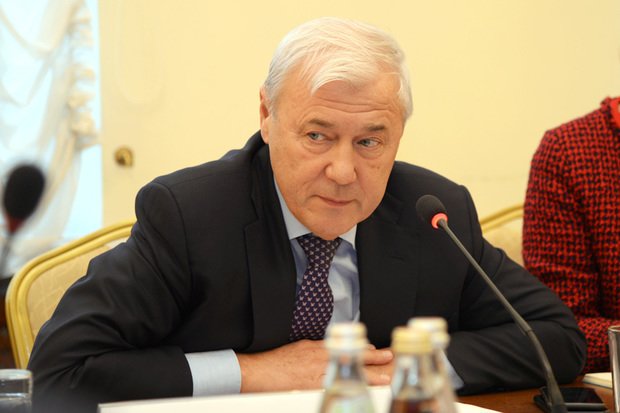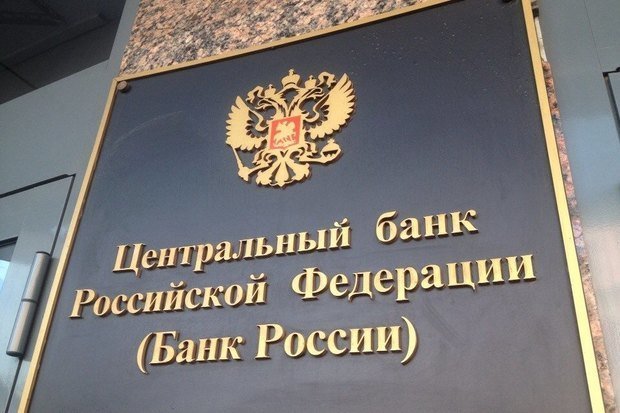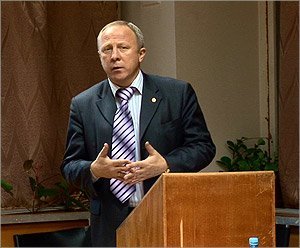'Black Monday' echo: insurers prescribed rehabilitation based on banking scenario
The State Duma urgently approved the rehabilitation mechanism due to the situation in the stock market
Due to the collapse of the Russian stock market, the State Duma speeded up the adoption of the bill on rehabilitation of insurance companies: it was discussed and accepted in the second and final reading within two days. It's planned to ''cure'' like big banks – with the help of a special fund of the Central Bank, which will invest money in problematic organisations and expel their previous owners. The experts surveyed by Realnoe Vremya have different opinions about this idea.
Alarming situation
The idea of rehabilitation of insurance companies was actively promoted by the Duma's Committee on Financial Market and its chairman Anatoly Aksakov from the very beginning. Last week, the committee recommended to adopt the corresponding bill in the second reading, so did it happen at the session of the State Duma on 10 April. Two days later, on 12 April, the bill was accepted in the final reading. It is to come into force 45 days after official publication (90 days were given in the first option).
At the session of the Duma on Tuesday, Aksakov claimed they needed to speed up the bill ''considering its importance due to the situation in financial markets, which also concerns the Central Bank.''
By the second reading, the project had insignificant changes. The president's administration offered to add a point that enables to cancel the insurance organisations' orders given by the regulator if all requirements were met during a month. ''Now there are cases when an instruction is given, it's not cancelled for a long time even if the financial institution eliminate all complaints,'' explained Aksakov.

Not only banks get sick
The law ''About Making Changes to Separate Acts of the Russian Federation in Rehabilitation of Insurance Organisations'' was created in accordance with Vladimir Putin's instruction as from 9 July 2017. A group of 15 deputies introduced it to the State Duma in late November, and it was approved in the first reading on 13 December already. In the explanatory note, the creators wrote it was designed ''not to allow the social tension and systemic problems (threats to stability) in the financial (insurance) market to grow.''
They want to rehabilitate insurance companies like banks. For this reason, it's offered to create Insurance Sector Consolidation Fund (ISCF), which will be made of the money of the Central Bank, which is independent from its other property. In July 2017, the Central Bank created the same fund for the banking sector. Now the banks Otkritie, Binbank, Promsvyazbank, Rost Bank, Trust and Sovetsky are going through rehabilitation with its participation.
The ISCF managing company will deal with the rehabilitation of insurance organisations. The very mechanism has already been used in banks: a problematic insurance company's authorised capital won't reduce to 1 ruble, after which the Central Bank is able to invest its money and get a share in the capital (less than 75%). In addition, the law permits to sue previous owners for rehabilitation costs.
Rehabilitation will be discussed if there are signs of the unstable financial situation, interested people, country ''as well as a threat to stability in the insurance market''. Meanwhile, the Central Bank has the right to do as it did – just to stop or revoke the company's licence.
The regulator will have the right to hand over the management of unstable insurance companies to temporary administration. If the decision is made in favour of financial rehabilitation, a moratorium on payment to creditors can be introduced (it isn't applied to reimbursement) for up to 3 months.

Cataclysm prevention
''We will see how it will work,'' says Vice-President of the Union of Insurance Companies of Tatarstan Rustem Sabirov. ''Yes, the mechanism [of supervision and rehabilitation] isn't perfect yet for either banks or insurance companies. It takes time, we need to go through it to understand weak links and probably to make changes. But at the first stage, a will is needed to prevent cataclysms, there is such a will. We will move step by step.''
In general, Sabirov considers the creation of the mechanism a correct decision. ''Any shock in financial markets seriously affects the sector, which is affected, and the financial market, in general, the social mood in society. [The appearance of the law means] the government understands the role of the insurance market, its importance to the economy. The market needs to be controlled, and we need to have certain airbags in case of unusual situations,'' he says.
''My opinion is the following: now the Central Bank will destroy the financial system in the sphere of insurance,'' says docent at RANEPA, financier Yury Yudenkov. ''It already strangled banking business, now it is the turn of insurance. The Central Bank isn't interested in development, it's interested in quality supervision. And it seems to create such supervision. But in the situation with stricter supervision, the basics of insurance business are destroyed together with unreliable companies.''
 In Yudenkov's opinion, the insurance sector should be excluded from the responsibility of the Central Bank. ''The Central Bank will control auditors soon. There is no logic in this monopolisation. Let's separate supervision of insurance organisations.''
In Yudenkov's opinion, the insurance sector should be excluded from the responsibility of the Central Bank. ''The Central Bank will control auditors soon. There is no logic in this monopolisation. Let's separate supervision of insurance organisations.''
The law on rehabilitation of insurance companies just shifts the balance: ''It increases the protection of insurers and creditors of companies – but by means owners. In the regulator's opinion, clients and creditors' risks are bigger than that of capital holders,'' notices Aleksey Bredikhin, director of ACRA rating group.
Bredikhin says the rehabilitation has both a benefit and risks. ''For'' is that the regulator will get a mechanism that will enable to rehabilitate systematically important organisations fast and, we will hope, effectively. For instance, the Russian State Insurance Company saved with the help of a mechanism for the banking sector. If it weren't part of Otkritie bank, it would be impossible to save it that way. The risks are that the rehabilitation can be used a bit excessively: when the company can cope with problems on its own, the regulator interferes and does more harm.''